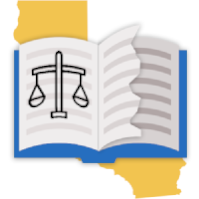Sedgwick Defies DWC COVID Rules; DWC Washes Hands

Sedgwick defied California workers’ comp regulations, costing a provider thousands in due reimbursement. Unfortunately, the Division of Workers’ Compensation (DWC) has declined to hold Sedgwick accountable.
Sedgwick disregarded emergency regulations enacted in response to COVID-19, and improperly denied reimbursement for Medical-Legal services. Worse, the Division of Workers’ Compensation (DWC) ruled the dispute ineligible for Independent Bill Review (IBR), even though the DWC created the emergency regulations that validated the provider’s charges as billed.
For the DWC to disallow independent review of a plainly invalid reimbursement denial is disappointing. Sedgwick’s refusal to reimburse a Panel QME exemplifies the lack of consequences when a claims administrator fails to follow the rules and regulations established by California legislators.
Sedgwick: Throwing CARCs at the Wall
Initially the provider, as a panel Qualified Medical Evaluator (QME), billed Sedgwick for a comprehensive Medical-Legal evaluation involving extraordinary circumstances. In the Explanation of Review (EOR) denying the charge, Sedgwick offered two denial reasons — one blatantly ridiculous, the other out of step with recent emergency regulations.
As the EOR shows below, Sedgwick denied the charges based on:
- Lack of authorization, and
- Untimely submission of the Medical-Legal evaluation report
To deny this bill for lack of authorization is blatantly noncompliant, as the provider is acknowledged as the designated QME by attorney letters from both sides. For Sedgwick to apply this denial reasoning suggests either bewildering incompetence, or a policy of throwing random CARCs at the wall to see if they stick.
As for the alleged untimely submission, the DWC enacted an emergency extension to the deadline for submitting Medical-Legal evaluation reports, in response to the COVID pandemic. That extension is applicable to the date of service for this bill.
Despite the facts, Sedgwick stood by their denial. The provider submitted a Second Review appeal to dispute the incorrect reimbursement, which Segwick denied as a duplicate bill.
Sedgwick: A Model of Non-Compliance
Following the Second Review appeal denial by Sedgwick, the provider requested IBR — at which point Sedgwick dropped the authorization argument. To dispute IBR eligibility, Sedgwick incorrectly argued that the provider submitted the Medical-Legal evaluation report untimely.
Under normal circumstances, the provider must submit the Medical-Legal evaluation report within 30 days of the evaluation. However, Section 46.2* of the California Code of Regulations (CCR), effective from March 14, 2020 to October 12, 2021,** extends the deadline by 15 days, to a total of 45 days.
In this case, the provider conducted the comprehensive medical-legal evaluation on August 28, 2020, and submitted the report to the parties on October 6, 2020 — 39 days later, and a full 6 days before the deadline. The parties acknowledged receipt of the Medical-Legal evaluation report on October 12, exactly 45 days from the date of the evaluation.
Admittedly, the untimely submission argument would be valid — had a global pandemic not drastically altered almost every industry on Earth, necessitating special accommodations.
A Clear Message From California
Maximus, the private entity which handles IBR on behalf of the DWC, referred this dispute back to the DWC. The DWC determined that the dispute was ineligible for IBR, despite Sedgwick having processed the bill incorrectly. Twice.
When state authorities, tasked with objectively resolving disputes, instead choose to wash their hands of disputes, it sends a message to providers and payers. The state reveals that it will not defend providers against payers who blatantly disregard DWC rules and regulations.
The DWC’s decision reinforces the notion that Sedgwick’s policy of “deny and see what happens” actually pays off, time and again.
Most galling about Sedgwick’s behavior is the fact that Sedgwick had multiple opportunities to pay this bill correctly. Instead:
- Sedgwick failed to recognize the emergency deadline extension, and
- Sedgwick claimed lack of authorization for a panel QME, and
- Sedgwick stood by both invalid denials even after a Second Review appeal, and
- Sedgwick stood by the untimely submission denial when confronted with a request for IBR
How many times can one claims administrator drop the same ball? How many pointless hurdles can providers be expected to navigate simply to get a valid bill paid?
And perhaps most importantly, why did the DWC fail to uphold this provider’s rights, in contravention of their own emergency declarations?
It’s an unsustainable dynamic, unless the goal is to profit insurers at the expense of providers and patients.
*A previous version of this post referenced CCR§38, which contains pre-pandemic deadline extensions
**At the time of this post’s original publishing, CCR §46.2 was effective to March 12, 2021. The DWC has since extended the emergency regulation to October 12, 2021.
Make RFAs, billing, and appeals easier than ever — and get paid faster. DaisyBill empowers providers to collect what’s owed in record time. Contact us to learn how we can help your practice.
LET’S CHAT!
DaisyBill provides content as an insightful service to its readers and clients. It does not offer legal advice and cannot guarantee the accuracy or suitability of its content for a particular purpose.
.png)

